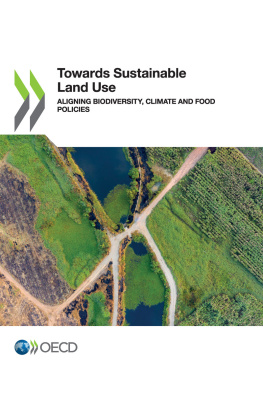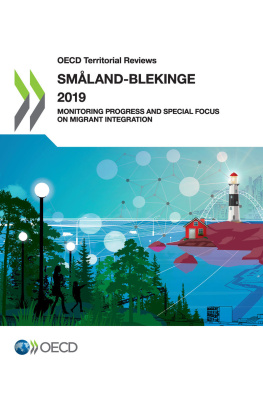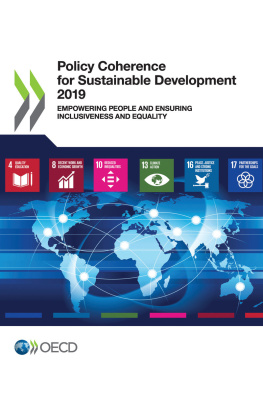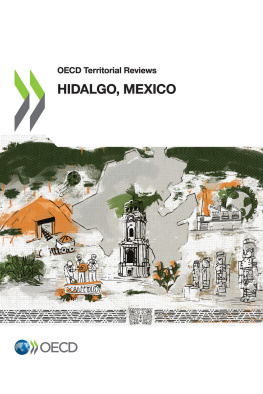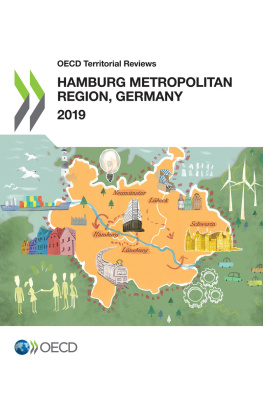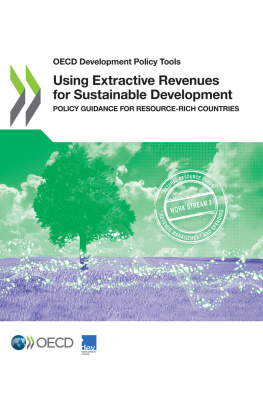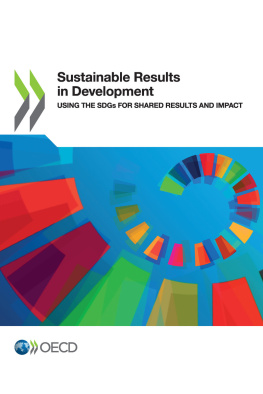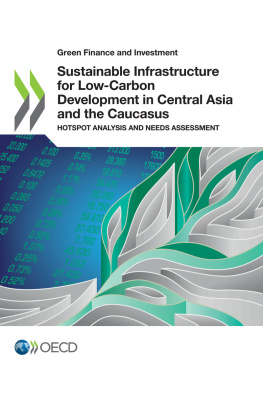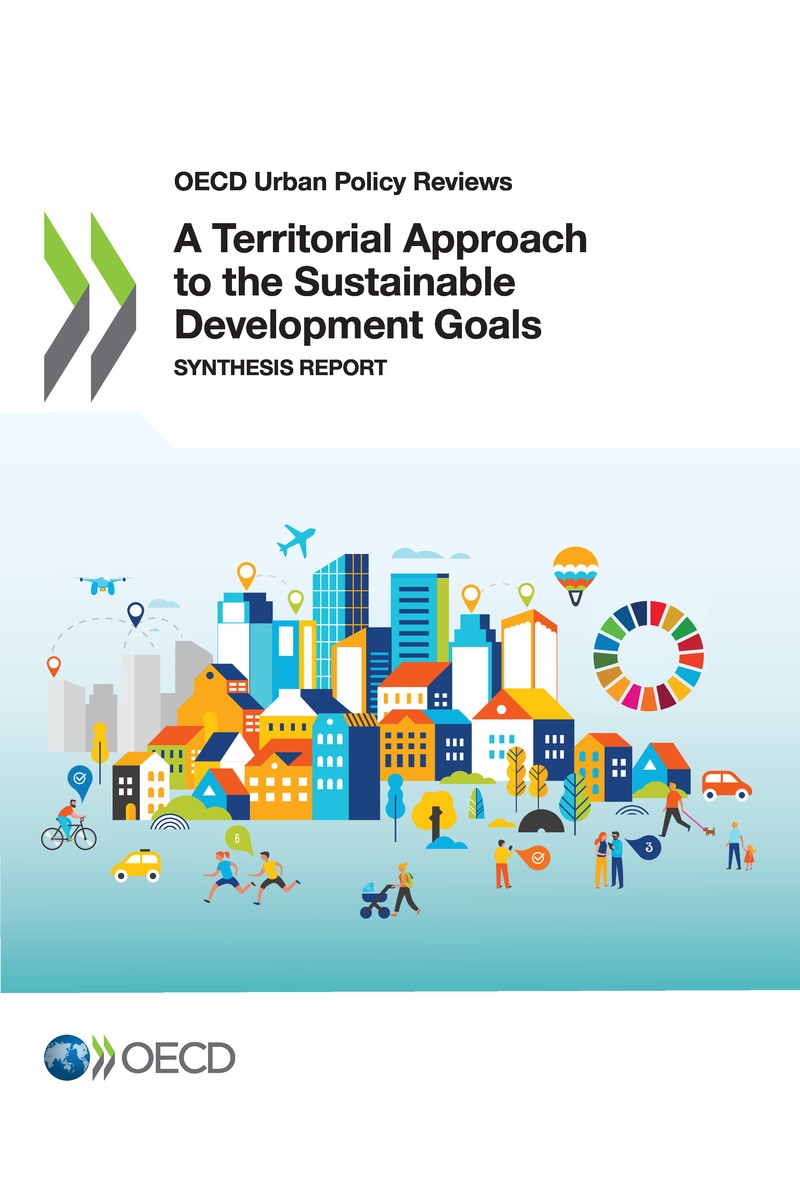Metadata, Legal and Rights
ISBN: 978-92-64-71930-9 (print) - 978-92-64-49471-8 (pdf) - 978-92-64-64168-6 (HTML) - 978-92-64-48819-9 (epub)
DOI: https://doi.org/10.1787/e86fa715-en
OECD Urban Policy Reviews
ISSN: 2306-9333 (print) - 2306-9341 (online)
This document, as well as any data and map included herein, are without prejudice to the status of or sovereignty over any territory, to the delimitation of international frontiers and boundaries and to the name of any territory, city or area.
The statistical data for Israel are supplied by and under the responsibility of the relevant Israeli authorities. The use of such data by the OECD is without prejudice to the status of the Golan Heights, East Jerusalem and Israeli settlements in the West Bank under the terms of international law.
Photo credits: Cover ma_rish/iStock/Getty Images Plus.
Corrigenda to publications may be found on line at: www.oecd.org/about/publishing/corrigenda.htm .
OECD 2020
The use of this work, whether digital or print, is governed by the Terms and Conditions to be found at http://www.oecd.org/termsandconditions .
Preface
We, Mayors, Governors, Ministers and Leaders from the nine pilot cities and regions of the OECDs Programme A Territorial Approach to the SDGs, are delighted to introduce the results of our collective engagement over the past 18 months.
As local and regional decision-makers, we are all grappling with similar challenges: climate change, demographic pressure, natural resources depletion, globalisation and social discontent, as well as steering digitalisation and managing its impact on the future of work. While future projections can sometimes depict a gloomy picture, we believe that bold and collective action, combined with political leadership and commitment, can drive the radical transformation of our societies and economies that is needed to transition to sustainable pathways for our people and the planet.
We have all experienced the powerful framework that the UN Sustainable Development Goals provide to design better local and regional policies for better lives. Being the closest political representatives to citizens, we have a critical role to play in achieving the SDGs. First, because we are responsible for key policies that are central to peoples well-being from housing to transport, drinking water and sanitation, land use and spatial planning, urban mobility, local economic development, or even air pollution. Second, because the SDGs help us speak a common language, identify synergies and manage trade-offs; raise awareness; engage our citizens; (re)shape our local and regional development strategies from the ground up; and prioritise our investments, budgets and resources.
We have come a long way since our journey started at the UN High-Level Political Forum on Sustainable Development (July 2018, New York). Together, with the support of the OECD, we have carried out several policy dialogues to share our experience and produce the findings of this report. We have engaged over 800 stakeholders in our respective cities Bonn (Germany), Kitakyushu (Japan), Kpavogur (Iceland), Moscow (Russian Federation) and regions Crdoba (Argentina), Flanders (Belgium), Southern Denmark (Denmark), Parana (Brazil) and Viken (Norway). And we have also worked with other dozens of institutions from public, private and non-profit sectors to build consensus, discuss best practices, and scale-up success stories.
This report summarises the important milestones achieved so far. It includes a comprehensive analytical framework to enhance a Territorial Approach to the SDGs in all places; a unique indicator framework to measure where cities and regions stand and foster peer-learning, and; an insightful checklist for public action to help policy makers at all levels of government on the SDGs journey. Nine additional pilot specific reports will be published over the coming months to summarise the findings and recommendations from the place-based dialogues in our cities and regions.
We are grateful for the process and dialogue underlying this report, whereby we listened and learned from each other, shared our experience, and welcomed respected advice and guidance from our peers and the OECD.
While we are aware that this is only a first step on the road to achieving the 2030 Agenda, we are particularly proud of the inclusive approach inherent to the development of these tools and recommendations and call for a massive and widespread use of them.
Cities and Regions of the OECD Programme A Territorial Approach to the SDGs

Ashok Sridharan,
Mayor of the city of Bonn (Germany)

Juan Schiaretti,
Governor of the province of Crdoba (Argentina)

Martin Ruebens,
Secretary General, Department of Public Governance and the Chancellery, region of Flanders (Belgium)

Wim Dries,
President of VVSG and Mayor of the city of Genk (Belgium)

Kenji Kitahashi,
Mayor of the city of Kitakyushu (Japan)

rmann Kr. lafsson,
Mayor of the municipality of Kpavogur (Iceland)

Sergui Sobianin,
Mayor of the city of Moscow (Russian Federation)

Carlos Roberto Massa Jnior,
Governor of the State of Parana (Brazil)










